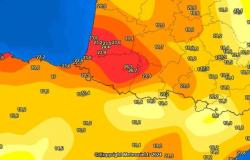
Călin Georgescu qualified for the second round of the presidential elections on Sunday after accumulating over 2 million votes, ranking first, with a percentage of 22.81%. This despite the fact that the first opinion polls before the elections placed him at the bottom of the ranking, which is why his rise was a shock, both for experts and for the press. “I can only say that I misread what will happen,” says a Romanian sociologist, while also trying to explain how everything happened.
Sociologist Claudiu Tufiš, Lecturer Univ. Dr. in the Faculty of Political Sciences of the University of Bucharest, with a doctorate in political science obtained at Pennsylvania State University, says that he knew that Georgescu would take votes from the AUR candidate, George Simion, thinking that the latter would lose the second round on this consideration, but he did not “imagine this massive transfer of votes from Simion to Georgescu via Șoșoacă”.
“When AUR appeared again I knew, then I had some internal data of some parties that showed how it would enter the parliament. Now, however, the data started to pick up CG's movement too late and not well enough. So I was seeing CG at around 10%, 12% maximum, but not as high a score as it seems to be”, writes Tufiš on Facebook.
The sociologist tries to pinpoint the possible causes that led to this end, but also why all the explanations that will come, be it manipulation, a political culture left underdeveloped or the inability to filter and understand information, will in fact be “explanations incomplete and often wrong”.
We reproduce in full his explanations regarding Georgescu's success, but also why any explanation will be limited:
“1. I think that the success of CG comes from the fact that the vote of many was given also as a reaction to what was seen as an attempt at manipulation: the Ciolacu-Simion table + the stupid decision of the CCR to ban the candidacy of Șoșoacă + the stupid decision of the AEP to asking CG to pull his material online all probably led to such an image being created. So when you're looking for Russian influences, look for them at CCR and AEP too, because they might be there too.
2. The result was also possible because in Romanian society there is a great demand for such a politician. Why? I could have said more precisely if I had some quality data about what the Romanians want. Unfortunately, we don't. The last serious data is from the EVS/WVS before the pandemic. Romania doesn't have a GSS-type survey, it doesn't have an Understanding Society-type survey, it doesn't have a panel like Polpan from the Poles, it doesn't even have the barometer of public opinion anymore. I personally have failed to convince people that it is worth funding such an annual survey. This is also how we pay for the fact that social research is ignored in Romania.
3. Continuing the point above, as long as there is demand in society, there will always be political supply for it. So it's important at this point to understand where the demand is coming from, because it's not as simple as identifying a single element. It's not just economics, it's not just lack of trust in established actors, it's not just communication / influence / manipulation. It is also a political culture left underdeveloped, it is also a response to the attempt to emphasize themes identified as “foreign”, it is also a lack of education, political disinterest and the inability to filter and understand information. In short, it's a research agenda for 10-20 research teams. Many will emerge in these days who will explain exactly what happened. They will only give incomplete and often wrong explanations. You can't know what, how, and why it happened without studying the phenomenon, and it hasn't been studied seriously for a long time.
Those of us who are interested in understanding things must now start from this point”.





